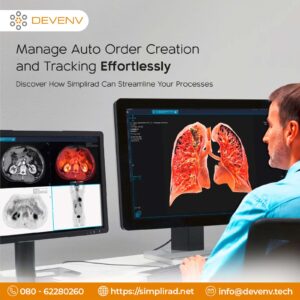In recent years, the healthcare landscape in Zambia has seen a significant transformation driven by technological advancements. Among these, healthcare apps have emerged as a game-changer, providing innovative solutions to enhance patient care, streamline medical processes, and bridge the gap in healthcare access. As we look towards the future, the potential for healthcare apps in Zambia is immense, promising to revolutionize the way healthcare services are delivered and accessed. This blog delves into the future of healthcare apps in Zambia, exploring their current impact, potential advancements, and the challenges that lie ahead.

The Current State of Healthcare Apps in Zambia
Healthcare apps in Zambia have already begun to make their mark, offering a range of services from appointment scheduling to telemedicine consultations. These apps have proven to be invaluable, especially in rural areas where access to healthcare facilities is limited. By enabling remote consultations, healthcare apps in Zambia are helping to overcome geographical barriers and provide timely medical advice to patients who would otherwise have to travel long distances to see a doctor.
Moreover, healthcare apps in Zambia are empowering patients with health information, allowing them to monitor their conditions and manage their health proactively. Apps that provide medication reminders, track vital signs, and offer educational content are enhancing patient engagement and compliance, leading to better health outcomes.
The Potential Advancements in Healthcare Apps

As technology continues to evolve, so too will the capabilities of healthcare apps in Zambia. Here are some potential advancements that could shape the future of healthcare apps in Zambia:
1. Artificial Intelligence and Machine Learning
The integration of artificial intelligence (AI) and machine learning (ML) into healthcare apps in Zambia could significantly enhance diagnostic accuracy and treatment recommendations. AI-powered apps can analyze vast amounts of data to identify patterns and predict health issues before they become critical. This can be particularly beneficial in Zambia, where early detection and intervention can save lives.
2. Telemedicine and Remote Monitoring

Contact For Teleradiology services
Telemedicine is already a vital component of healthcare apps in Zambia, but its future holds even greater promise. With advancements in video conferencing technology and remote monitoring devices, healthcare providers can offer more comprehensive remote consultations. Patients can receive real-time monitoring of chronic conditions, such as diabetes or hypertension, without leaving their homes, reducing the burden on healthcare facilities.
3. Personalized Medicine
Healthcare apps in Zambia are poised to play a significant role in personalized medicine. By leveraging genetic information and patient history, apps can provide tailored treatment plans and medication recommendations. Personalized medicine can lead to more effective treatments and fewer side effects, improving patient satisfaction and outcomes.
4. Blockchain for Data Security
Data security is a critical concern in healthcare, and blockchain technology offers a solution. Healthcare apps in Zambia can use blockchain to securely store and share patient data, ensuring privacy and preventing unauthorized access. This can build trust among patients and healthcare providers, encouraging more widespread adoption of digital health solutions.
5. Integration with Wearable Devices
Wearable devices, such as fitness trackers and smartwatches, can be integrated with healthcare apps in Zambia to provide continuous health monitoring. These devices can track vital signs, physical activity, and sleep patterns, transmitting data to healthcare providers for real-time analysis. This continuous monitoring can help detect health issues early and provide personalized health insights to patients.
Challenges to Overcome

While the future of healthcare apps in Zambia is promising, several challenges must be addressed to realize their full potential:
1. Digital Literacy
A significant barrier to the widespread adoption of healthcare apps in Zambia is the level of digital literacy among the population. Efforts must be made to educate users on how to navigate and utilize these apps effectively. This includes training healthcare providers to recommend and support the use of healthcare apps in Zambia.
2. Infrastructure and Connectivity
Reliable internet connectivity is crucial for the functioning of healthcare apps in Zambia, especially for telemedicine and remote monitoring. Investments in improving infrastructure and expanding internet access in rural areas are essential to ensure that everyone can benefit from these technological advancements.
3. Regulatory Framework
A robust regulatory framework is needed to govern the use of healthcare apps in Zambia. This includes establishing standards for data security, privacy, and the quality of digital health services. Clear regulations can help build trust among users and ensure the safe and effective use of healthcare apps in Zambia.
4. Cost and Accessibility
Healthcare apps must be affordable and accessible to all segments of the population, including those in low-income areas. Initiatives to subsidize the cost of these apps or provide them for free can help ensure that everyone has access to quality healthcare services.
The Road Ahead

The future of healthcare apps in Zambia is bright, with the potential to transform the healthcare landscape and improve the lives of millions. As technology continues to advance, these apps will become more sophisticated, offering personalized, efficient, and accessible healthcare solutions.
1. Collaborations and Partnerships
Collaborations between technology companies, healthcare providers, and the government will be crucial in driving the development and adoption of healthcare apps in Zambia. Public-private partnerships can help pool resources and expertise to create innovative solutions that address the unique challenges of the Zambian healthcare system.
2. Continuous Innovation
The healthcare industry is dynamic, and continuous innovation is necessary to keep pace with evolving needs and technologies. Encouraging a culture of innovation and providing support for startups and entrepreneurs in the digital health space can lead to the development of cutting-edge healthcare apps in Zambia.
3. Focus on User-Centric Design
For healthcare apps in Zambia to be successful, they must be user-friendly and designed with the end-user in mind. This means involving patients and healthcare providers in the design process to ensure that the apps meet their needs and preferences.
4. Education and Awareness
Raising awareness about the benefits of healthcare apps in Zambia is essential for their widespread adoption. Educational campaigns and outreach programs can help inform the public about how these apps can improve their health and well-being.
Conclusion

Contact For Healthcare App & Software Development Services
The future of healthcare apps in Zambia holds tremendous promise, with the potential to revolutionize healthcare delivery and improve access to quality care. By leveraging advancements in AI, telemedicine, personalized medicine, and data security, healthcare apps can address the unique challenges faced by the Zambian healthcare system.
However, realizing this potential requires addressing challenges such as digital literacy, infrastructure, regulatory frameworks, and cost. Through collaborations, continuous innovation, user-centric design, and education, Zambia can pave the way for a healthier future powered by healthcare apps.
As we look ahead, the integration of healthcare apps in Zambia will play a pivotal role in shaping a more efficient, accessible, and patient-centered healthcare system. Embracing this technological transformation will not only enhance the quality of care but also empower individuals to take control of their health, leading to a healthier and more prosperous nation.



